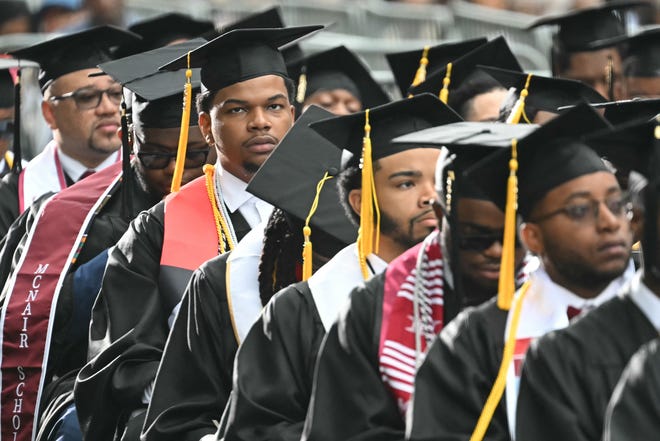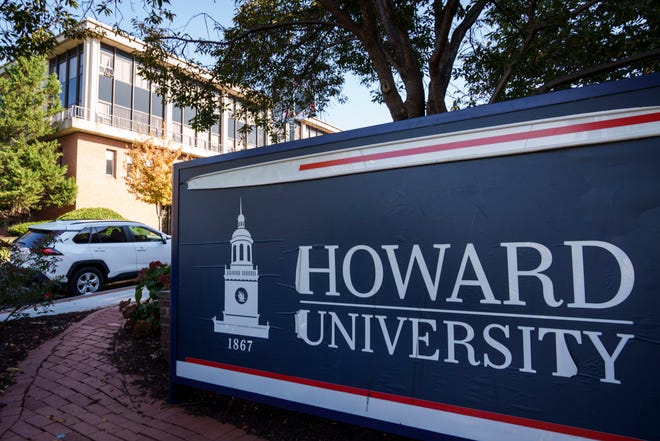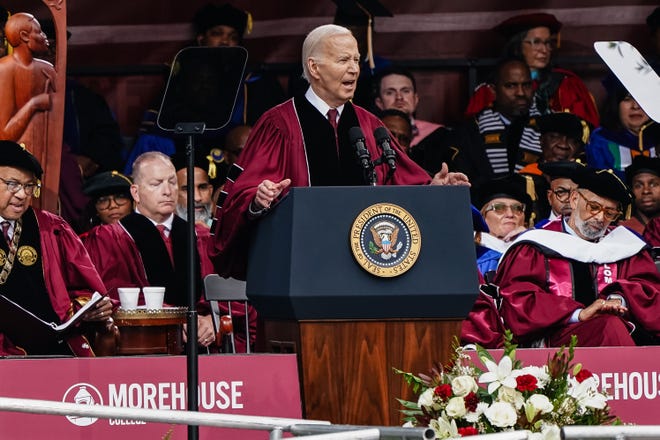During this summer, a team of students from MIT embarked on a journey to the sou …
Biden administration provides record-breaking funding to HBCUs; $16 billion allocation details revealed
Jennifer Livingstone

The Biden administration recently unveiled that it has dedicated a record $16 billion to historically Black colleges and universities in the last three years.
The announcement of this historic investment came on Thursday, preceding Biden’s commencement speech at Morehouse College on Sunday, a distinguished African American academic institution in the United States.
“These unprecedented funding levels showcase the Administration’s ongoing support for HBCUs, which play a crucial role in promoting upward economic mobility in our nation,” stated the White House in a press release.
USA TODAY conducted an analysis to determine how the funds were allocated and compared the record investment to predominantly white universities.
Where did the funding go?
Over the past three years, federal funding has been allocated to various areas:
- Almost $4 billion directed to HBCUs through the American Rescue Plan and other COVID relief legislation.
- $2.6 billion provided by the Department of Education to enhance institutional capacity at HBCUs, focusing on program growth, infrastructure development, and research advancement.
- Over $1.6 billion allocated through Federal grants and competitive funding opportunities.
- Nearly $950 million to boost research capacity and infrastructure at HBCUs.
- Close to $719 million in grant funding to expand STEM programs and academic capacity.
- Over $150 million in federal contracts awarded for research and STEM education expansion.
- $1.6 billion in capital finance debt relief for 45 public and private HBCUs.
- More than $2.4 million in Project SERV funds to aid HBCUs affected by bomb threats.
- $2.8 billion in need-based grants and federal programs supporting HBCUs.
- Nearly $1.3 billion to assist veterans attending HBCUs through various programs.
The significance of historically Black colleges and universities
Leslie Jones, founder and director of The Hundred-Seven, notes there are over 100 HBCUs nationwide, institutions that play a critical role in higher education for Black students.
HBCUs represent a small percent of all higher education institutions but account for a significant portion of Black undergraduate enrollment and bachelor’s degrees earned by Black students.
Research indicates that HBCUs facilitate upward mobility, with a substantial number of graduates moving to higher income quintiles than their parents by age 30.
Notably, HBCUs have been instrumental in producing Black engineers, teachers, doctors, and dentists, with a significant percentage of these professionals earning their degrees from HBCUs as highlighted by the Biden administration.
According to social mobility research by the United Negro College Fund, HBCUs play a vital role in supporting community members in transitioning to higher income brackets.

Geographical distribution of HBCUs

A history of underfunding for HBCUs
Historically Black land-grant universities are legally entitled to receive equitable funding comparable to predominantly white land-grant universities.
Education Secretary Miguel Cardona and Agriculture Secretary Tom Vilsack sent letters to 16 state governors addressing funding disparities that amounted to $13 billion for 16 historically Black land-grant universities.
Inside Higher Ed reports that between 1987 and 2020, 16 state-funded institutions faced significant funding gaps compared to predominantly white land-grant universities.
The federal analysis revealed substantial underfunding by several states, including Tennessee, North Carolina, Florida, Texas, and others, towards historically Black land grant colleges.
A study by research groups Candid and ABFE highlighted a 30% decrease in funding to HBCUs from major U.S. foundations over a period of 17 years.
Comparatively, HBCUs received significantly less foundation funding than Ivy League institutions, indicating a funding disparity in support of Black colleges and universities.
While Ivy League schools received billions in foundation funding, HBCUs faced a decline in financial support over the years.

